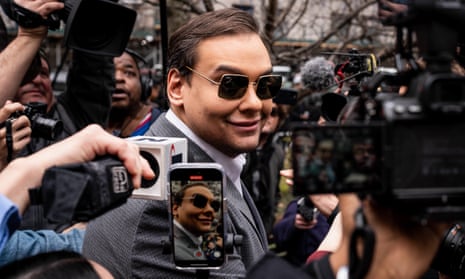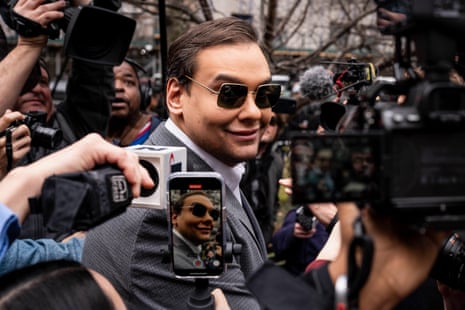It started, as multi-billion dollar tech deals often do these days, with a text from Masayoshi Son. Jensen Huang was sitting in the kitchen of his Silicon Valley home, his makeshift base during the pandemic, when his phone lit up with a message from the SoftBank boss.
“He texts me, ‘Do you want to talk?’ and we got on the phone, and that was about it,” Nvidia’s chief executive says of the mega deal the two billionaires sealed last week after months of talks.
Late on Sunday, Nvidia announced it had agreed to pay $40bn (£31bn) for Arm, the Cambridge-based microchip company that SoftBank had bought four years earlier.
SoftBank, under pressure from investors, was looking to offload Arm, which it had paid £24bn for, and Son and Huang had a long-standing relationship owing to a previous investment in Nvidia. “One day he came to me and said ‘How would you like to put the two of them together?’
This transaction is very much a continuation of a vision that he’s had for some time,” Huang says. “I jumped on it, and by the end of the call I told him, ‘I will be the highest bidder. If this ever gets shopped, I will be the highest bidder.’ And I was.”
The deal is the biggest ever involving a British technology company and the most expensive transaction the semiconductor industry has seen. Huang describes it as “very expensive”. But the 57-year-old Taiwan-born entrepreneur sees it as one that caps the rise of his chip company to the top of the technology industry.
Huang founded Nvidia in 1993, and has been in charge of the company since then, a stretch that makes him one of the world’s longest-serving chief executives. For most of that time, the company’s chips, known as GPUs, were used mainly for one thing: video game graphics. But in the last decade that has changed.
Programmers discovered that GPUs, which make multiple calculations at the same time rather than in sequence – the equivalent of having lots of lanes on a motorway, instead of making the cars faster – were perfectly suited to new branches of computing.
Artificial intelligence, cryptocurrency mining and scientific modelling all started to make use of Nvidia’s chips. Huang describes the company’s technology as a “time machine”, referring to the way it can create simulations that could be used to predict cancer or climate change.
This has seen the company’s fortunes change dramatically. Five years ago, Nvidia was worth $14bn – less than Arm. Today, it is America’s most valuable semiconductor company, worth over $300bn. Huang’s stake amounts to $11bn.
That 20-fold share price rise is the reason Huang can afford to buy Arm. Nvidia is paying mostly in its own equity, making SoftBank the company’s biggest shareholder.
Arm is a very different business to Nvidia. Founded in 1990 as a spin-off of Acorn Computers, it does not sell chips, but licenses its architecture to manufacturers, which in turn put them into smartphones and tiny internet-enabled devices. It sells to hundreds of customers, charging royalties on the billions of Arm-based chips sold each year.
The combination of the two may not be an obvious move, but Huang, inset, says the union will knit together a revolution that combines the Nvidia chips in high-powered computer servers with the hyper-efficient Arm-based ones in consumers’ hands, operating driverless cars, and sitting on satellites.
“The future is going to be about trillions of machines. And these machines are going to be cars and delivery drones and manufacturing robots. Everything is going to become intelligent. Together, we [Arm and Nvidia] will be able to invent this future.”
But while both SoftBank and Nvidia shareholders approve of the deal, it has not been universally popular. Two of Arm’s co-founders have attacked the sale, claiming Britain risked losing control of its prized tech asset.
While Arm has been foreign owned for four years, in reality SoftBank had been more investor than parent company, and had also made legal pledges to raise staff numbers and maintain the company’s Cambridge headquarters.
Nvidia CEO Jensen Huang
Credit: AP
Nvidia, in contrast, competes with many of Arm’s other customers, and is buying a technology as much as it is buying a business. It has pledged to keep Arm’s open licensing model, and its Cambridge base, but this has not shielded it from criticism that critical British technology is being taken away. Huang admits to not being completely prepared for the reaction.
“It surprised me that,” he pauses, choosing his words carefully, “people got so … excited.” Huang expected a more enthusiastic welcome to Nvidia’s promise to build an AI research centre in Cambridge in particular. “We’re going to build infrastructure that allows great research to happen. New hi-tech companies will walk from that and years from now, I really believe they will come back and see this as a catalyst moment.”
However, Huang says he understands sensitivity around the future of Britain’s biggest tech company. “It’s a real jewel of the technology industry. It took computer scientists in the UK some 30 years to build. It’s a once in a generation company. There’s a great sense of pride and a great desire to protect the people.”
To that end, Huang reveals that he will commit to legally-binding undertakings on Arm’s UK headquarters and investment. This may include pledges on jobs numbers, depending on Government negotiations, although Huang says he finds the focus a distraction. “We don’t think in headcount in our world, and the reason for that is because one Alan Turing is worth 10bn people. We’re looking to find another Alan Turing, we’re looking to find another Isaac Newton.”
Arm Holdings timeline
Legal pledges may reassure the Government. But other hurdles apply to the deal, which is estimated to take 18 months and includes a $2bn break fee. Chinese state media have said selling Arm to a US company could mean it being subject to export restrictions that ban sales to Huawei, and regulators may demand assurances that Arm’s neutrality will persist.
Huang says that he would simply not pursue the deal if he did not believe it would be approved.
Not everyone agrees; one analyst puts the chances of a deal being approved at 50-50. But if Nvidia’s founder can win sceptics over, it would be his crowning achievement.
If Huang is looking for a way of celebrating, one option might be a new tattoo, after having Nvidia’s logo inked on his left arm when its share price hit $100. Would he follow up with an Arm one? “Maybe I should put Arm on my leg,” he muses. “I paid an arm and a leg for it.”






























































Recent Comments